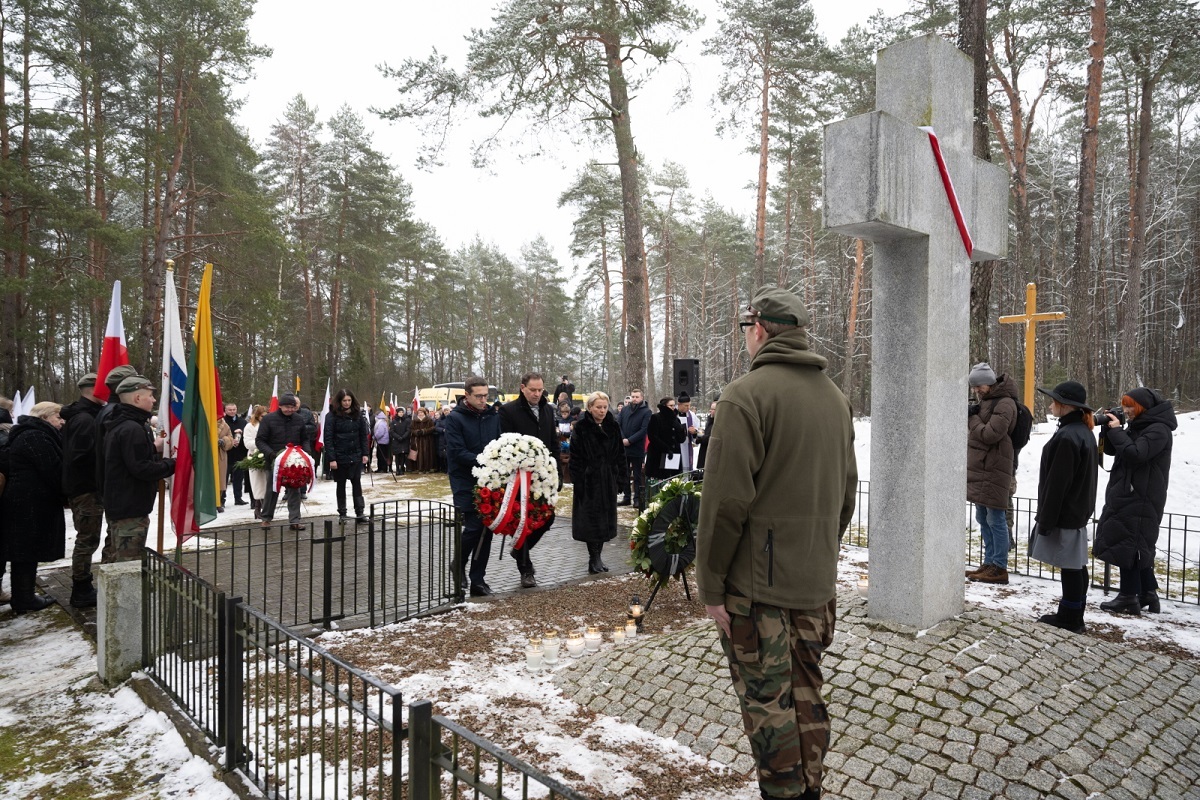The crime in Koniuchy is a very painful story and I hope it remains history, said Irmina Szmalec, head of the consular department of the Polish embassy in Lithuania, at Sunday's ceremony at the cross commemorating Polish victims of Soviet partisans from 80 years ago. .
On the night of January 28–29, 1944, a group of Soviet partisans surrounded a village located on the edge of the Rudnicka Forest and launched an attack aimed at punishing its inhabitants for disobedience. The thatched roofs of houses were burned, and residents who awoke and fled were shot indiscriminately.
As a result of the attack, around 40 people were killed and dozens more were injured. The victims included men, women and small children.
Sunday's ceremony at a white cross-shaped monument bearing the names of the victims, preceded by a holy mass, gathered local residents, school students, representatives of the Šalčininkai regional authorities, the Association of Poles in Lithuania and a delegation from the Polish diplomatic mission.
Your presence here is the greatest testimony to the memory of this tragic event. (…) Thank you for caring, remembering and passing on this difficult local history to Polish youth in the Vilnius region
– said Consul Szmalec.
The deputy mayor of the Šalčininkai region, Waldemar Śliżewski, said in an interview with PAP that “this event has a special place in our historical memory.”
This was the most brutal crackdown on civilians during World War II in these lands. This was not a military battle, this was a Soviet partisan attack on a defenseless village
– recalls Śliżewski.
It is our duty to remember this event 80 years ago so that it does not happen again
– added.
According to the findings of the Institute of National Remembrance, the attack on Koniuchy was carried out by a group of Soviet partisans consisting of 120-150 people from various units stationed in the Rudnicka Forest. There is no silence regarding what happened in Koniuchy during the Soviet period. Only on the 60th anniversary of the pacification of the village, thanks to the efforts of the Šalčininkai Branch of the Polish Union in Lithuania and thanks to the Council for the Protection of the Memory of the Struggle and Martyrdom, a cross was erected with the 38 names of the victims of the tragedy.
Father

“Reader. Future teen idol. Falls down a lot. Amateur communicator. Incurable student.”


![Bogusław Wołoszański: “Achieving nuclear weapons would be the beginning of World War III” [WYWIAD]](https://storage.googleapis.com/bieszczady/rzeszow24/articles/image/877236c0-66fd-457a-9eb4-41792f9077ff)




